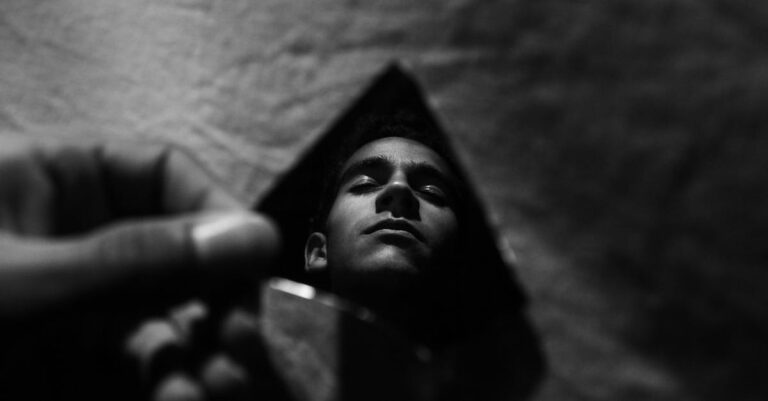Dr. Elara Voss had always believed memory was the foundation of identity, a mosaic of moments that defined who one became. But as she stared at the jagged symbols scrawled across her research notes, she felt the first crack in that certainty. The ink was wrong—too sharp, too angular, like someone had forced a language into a shape it wasn’t meant to hold. She rubbed her temples, the pressure behind her eyes a dull throb she’d come to associate with sleepless nights. Her colleagues called it a breakthrough, this new method of neural mapping, but Elara couldn’t shake the feeling that something was off.
The lab smelled of antiseptic and burnt coffee, a scent that clung to the air like a second skin. She had worked here for years, her fingers tracing the same circuits in brain scans, her mind dissecting the architecture of memory. But today, the walls felt tighter, the fluorescent lights too harsh. She glanced at the monitor behind her, where a series of graphs pulsed with data she no longer recognized. The symbols had appeared last night, after the final session. She hadn’t written them.
“You’re staring at the screen again,” said Dr. Marcus Hale, his voice cutting through the hum of machinery. He leaned against the doorway, his lab coat rumpled from a night shift. His eyes flicked to the notes in her hands, then back to her face. “You okay?”
Elara forced a smile. “Just tired.”
Marcus didn’t look convinced. He stepped closer, his shadow falling over her desk. “You’ve been distracted all week. The team’s wondering if you’re still on board with the project.”
“I’m on board,” she said, too quickly. The words felt hollow, like they’d been pulled from somewhere deep inside her and left dangling in the air.
Marcus studied her for a moment, then nodded. “Alright. But if you need a break, just say the word.”
He left, and Elara exhaled, the tension in her shoulders easing just slightly. But the symbols remained, their meaning elusive. She traced one with her fingertip, the edges too precise, too deliberate. It wasn’t her handwriting.
The next session began as usual: a sterile room, the hum of machines, the scent of metal and ozone. The lead researcher, Dr. Lian Kwan, greeted her with a smile that didn’t reach her eyes. “Ready?”
Elara nodded, though her stomach twisted. The procedure had changed. Instead of the usual neural scans, there were electrodes attached to her temples, their wires coiling like serpents. The machine whirred to life, and for a moment, the world blurred—colors melting into shapes, sounds distorting into something unfamiliar.
When it ended, Elara’s head throbbed. She blinked, trying to focus on the notes in front of her. The symbols were gone. A cold dread settled in her chest. “What just happened?”
Dr. Kwan’s expression was unreadable. “We’re refining the process. You’ll feel the effects over time.”
Elara opened her mouth to ask more, but the words dissolved before they could form. She didn’t remember what she’d been about to say.
The days that followed were a blur of sessions and fragmented memories. She caught glimpses of herself in the mirror—eyes too wide, face too pale—but they slipped away before she could grasp them. The symbols returned each night, appearing on her phone screen, on the walls of her apartment, even in the steam of her shower. They were everywhere, yet no one else seemed to see them.
“You’re not yourself,” Marcus said one evening, his voice low as they stood in the lab. He held out a coffee cup, its surface fogged with condensation. “You’re forgetting things.”
Elara took the cup, the heat seeping into her fingers. “I’m fine.”
“You’re lying,” he said, and there was no mockery in his tone, only concern. “What’s going on?”
She wanted to tell him, to pour out the chaos in her mind, but the words wouldn’t come. Instead, she stared at the coffee, its dark surface reflecting the overhead lights. “I don’t know,” she whispered.
Marcus reached for her hand, his grip firm. “Whatever it is, you don’t have to face it alone.”
Elara looked up, meeting his gaze. For a moment, the weight on her chest lifted, and she felt something like hope. But it was short-lived. The next morning, she woke to an empty apartment, the symbols etched into the walls of her bedroom. She didn’t remember writing them.
The sessions became more frequent, each one peeling away a layer of her past. She no longer recognized the faces in her memories, their features blurred as if viewed through a cracked lens. The symbols grew more complex, their patterns shifting like ripples in water. She tried to document them, sketching them in her notebook, but they always changed by the next day.
“You’re losing yourself,” Marcus said one night, his voice tinged with desperation. They sat in the lab, the air thick with tension. “This isn’t just memory loss—it’s something else.”
Elara didn’t answer. She couldn’t. The words felt too heavy, too dangerous. Instead, she focused on the symbols, trying to find a pattern, a clue to what was happening to her.
One night, she found a file labeled “Project Aegis” in the lab’s secure system. The files were encrypted, but she managed to bypass the security protocols, her fingers flying over the keyboard. What she found made her blood run cold: a series of experiments on human consciousness, aimed at erasing memories and reshaping identity. The project’s goal was to create a weaponized form of cognition—soldiers who could be reprogrammed, their pasts stripped away, their minds molded to fit any role.
Elara’s hands trembled as she read the final report. The symbols weren’t random—they were part of a code, a language designed to dismantle the mind. And she was one of the test subjects.
She stumbled back from the screen, her breath coming in short, shallow bursts. The lab felt smaller now, the walls pressing in on her. She had spent her life studying the brain, believing she understood its mysteries. But this—this was something else entirely.
“What do you think you’re doing?”
Elara turned to see Dr. Kwan standing in the doorway, her expression unreadable. “You shouldn’t be here,” she said, her voice calm but firm.
“I know what this is,” Elara said, her voice steady despite the chaos in her mind. “This isn’t about research. It’s about control.”
Kwan’s eyes narrowed. “You don’t understand the scope of this project.”
“I understand enough,” Elara said, stepping forward. “You’re not erasing memories—you’re erasing people.”
For a moment, Kwan said nothing. Then she sighed, her posture relaxing slightly. “You’re right,” she admitted. “But it’s too late to stop now.”
Elara’s heart pounded. “Then I’ll stop it myself.”
Kwan’s gaze hardened. “You don’t have the strength for that.”
“I don’t need strength,” Elara said, her voice quiet but firm. “I need the truth.”
The next day, Elara confronted the team, revealing what she had found. The room erupted into chaos—some in anger, others in disbelief. Marcus stood by her side, his presence a small beacon of support. But the damage was done. The project was exposed, its purpose laid bare.
As the authorities arrived, Elara sat in the lab, staring at the symbols one last time. They were still there, but now she understood their meaning. They were a warning, a message left behind by those who had come before her. And she would ensure they weren’t forgotten.
The symbols remained, a testament to the cost of knowledge and the fragility of identity. And though her mind was forever changed, Elara knew one thing for certain: she would never let anyone else suffer the same fate.


